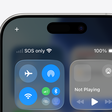Apple has posted pages for Mac OS X Snow Leopard for both server and client and describe a bit of what users can expect from the next OS X release. Apple promises that Snow Leopard "dramatically reduces the footprint of Mac OS X, making it even more efficient for users, and giving them back valuable hard drive space for their music and photos." Some early screenshots from the Developer seed of Snow Leopard do indeed show significantly smaller application file sizes over current Leopard installations. Other features listed on Apple's site were largely touched on in the press release.
The New York Times, however, reveals that Snow Leopard's big focus is taking advantage of the recent trend towards multi-core and parallel computer processes. Steve Jobs provided some information on Apple's direction:
"We've added over a thousand features to Mac OS X in the last five years," he said Monday in an interview after his presentation. "Were going to hit the pause button on new features."
....
"The way the processor industry is going is to add more and more cores, but nobody knows how to program those things," he said. "I mean, two, yeah; four, not really; eight, forget it."
According to Jobs, Apple has made a parallel-programming breakthrough with "Grand Central." Additionally, Apple claims their new OpenCL technology is "way beyond what Nvidia or anyone else has." There had been talk from Nvidia's CEO that Apple may adopt their CUDA technology, but it appears that Apple's implementation may be more advanced. CUDA allows programmers to offload processing to the computer's graphics processors, which can be very powerful.
Apple's focus on parallel computing comes at a natural time with Intel's upcoming plans for Nehalem processors which will scale up to 8-core processors. Apple has announced that Snow Leopard will be delivered in "about a year".
Updated: The original version of the article had indicated that Jobs pitted Grand Central against nVidia's CUDA. It has been updated to include that while Jobs touts Grand Central as a breakthrough, the comparison was in regards to Apple's OpenCL




















